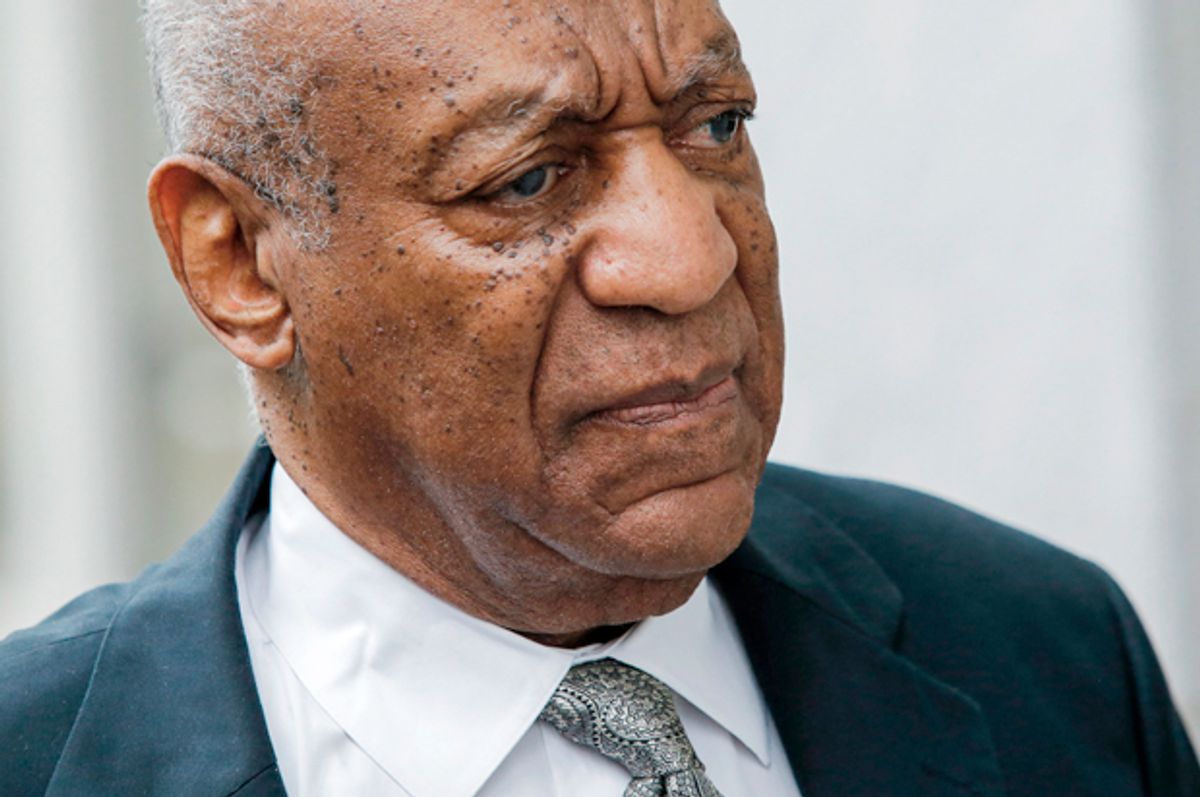One of the jurors from Bill Cosby's trial is coming forward with some reasons why he voted to acquit Cosby and his position appears to have contributed to last week's mistrial.
Talking to the Philadelphia Inquirer about accuser Andrea Constand's powerful testimony, the unidentified juror said, "She was well-coached. Let’s face it: She went up to his house with a bare midriff and incense and bath salts. What the heck?"
He later said Constand should have only gone to Cosby's house if she had "dressed properly and left the incense in the store," referring to a gift of incense that she had purchased for Cosby.
The juror also insisted that Cosby should not be forced to go through another trial, arguing that Cosby had already "paid dearly" and claiming that he hadn't been sure the comedian was "going to be able to make it through the whole trial the first couple of days."
Tellingly, the juror also felt that many of the 60 other women who have also accused Cosby of sexual assault were lying, describing the situation as "ridiculous, unbelievable" and insisting that "more than half jumped on the bandwagon."
When it came to discussing Constand's potential motives for lying, the juror asserted that "it was her mother who forced all this."
His claim contradicted the account of a different juror who had said there had been a 10-to-2 vote to convict Cosby of drugging and sexually assaulting Constand, although three jurors later decided to acquit Cosby.
The unidentified juror claimed that the jury had been split "up the middle: young and old, black and white, men and women." He blamed the panel's indecisiveness on the specific language of the charges, which he felt were "too legal." He said the jury got hung up over terms such as "reckless" and "severely impaired."
As he put it, "We were trying to match the testimony up with the charges. Everybody’s interpretation of those words was something different."



Shares